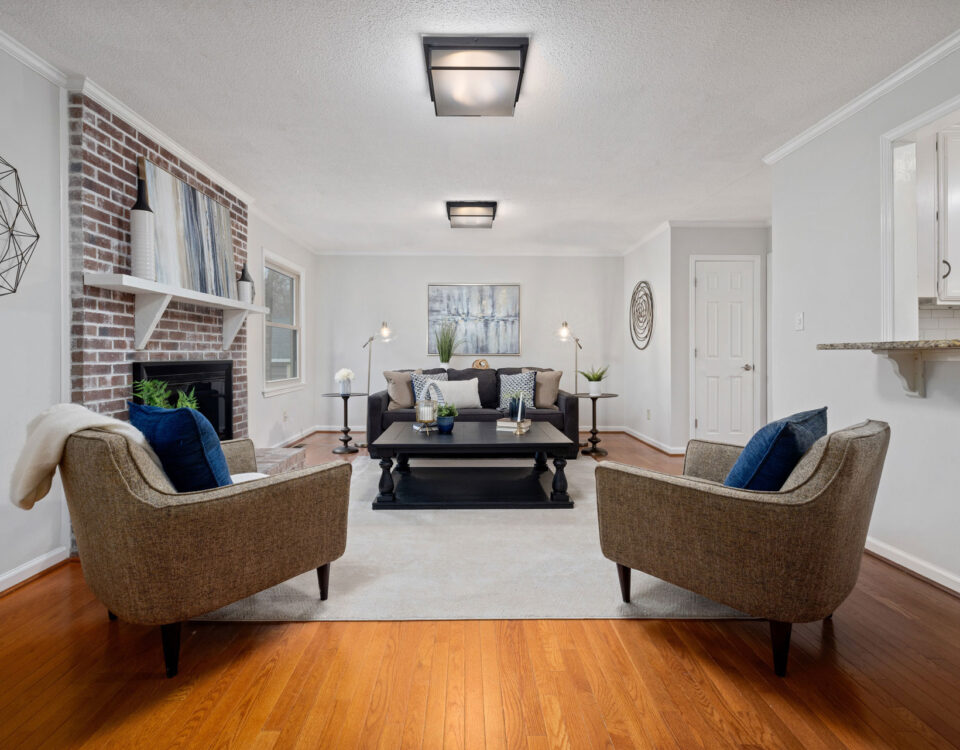Best Practices in Condo Association Management

The Top 10 Home Maintenance Projects That CT Homeowners Overlook
April 25, 2021
Commercial Property Insurance: What Every Owner Should Know
October 11, 2021A well-run condo association increases property values by providing many valuable services to the residents. There’s a lot that goes into maintaining properties, and the condo association management team is responsible for the safety and happiness of their residents. Today, we’re sharing some of the best practices for condo associations we’ve seen across Fairfield and Westchester counties.
Basic Q&A for condo association management
Not everyone is familiar with the role and responsibilities of a condo association, so it will help to first cover what falls under their responsibilities.
What is a condo association and what are they responsible for?
When you purchase a condo, you are buying into a community. A condo association is responsible for governing the condo group. They are responsible for maintaining the common areas and utilities that the development offers. This consists of managing the association’s finances, hiring workers to repair, clean, and maintaining the grounds and common areas in their purview.
A well-run condo association increases the property value of the condos by making the community a desirable place to live. They are typically governed by an agreed-upon set of rules and governed by a board of directors that includes homeowners who live in the association. Since most of the board members maintain full-time jobs outside of the association, they have a lot on their plate.
Oftentimes, a condo association will opt to hire a superintendent or property manager to manage the day-to-day operations of the association and respond to any maintenance needs or emergency repairs the residents need.

How are they funded?
To put it simply, the condo association fees that each resident pays monthly are the funds that are used to maintain the association. The funds are used to maintain things like lawns, sidewalks, balconies, roofs, siding, common hallways, pools, lobbies, elevators, staircases, laundry rooms, playgrounds, parks, and trash removal.
What are they not responsible for?
With most condo associations, the owners of the individual units are responsible for anything that is within their walls. A condo association will not repair appliances in your home or shower/bathtubs. They are strictly responsible for the common grounds and services the condo association offers. They can often recommend a contractor for your personal work if you ask.
Best practices in condo association management
Since the goal of a condo association is to serve its residents, a lot of the best practices necessary for a condo association comes down to a few key factors: communication, ethics, financial responsibility, and consideration of members' concerns.
Communicating effectively
Although there’s no single best way to communicate with owners, there are a few best practices and strategies we see in some of the more well-run condo associations in Stamford, Greenwich, Rye, and Darien in particular. They’re on top of their communication and have given us several ideas we can relay to you.
Overcommunication is key
One of the best ways to ensure your condo owners are invested and involved in your association is to ensure you are communicating with them as frequently as possible. Frequent communication will not only remind the owners that you exist, and are providing a valuable service, but it will keep them in the loop.
Asking for feedback will help show your owners that you are interested in their experience and their opinion on what’s going on in the community. Your owners are the group you are serving and working for, so it’s extremely important to get their feedback as often as possible. Even if the feedback is negative, this is a good thing. You won’t be able to fix anyone’s problems without knowing they exist. Knowing problems exist sooner than later will save your association money by being able to address the problem before it becomes a bigger problem.
Make communication simple and easy
The fewer hoops a resident has to jump through to communicate with your team, the better. People usually don’t like to go out of their way to find information, so if they need to log in to a website, or walk over to your offices to pick up a pamphlet, you may find that owners are less likely to communicate and be involved in the process.
Going digital and giving multiple options for communication is the best way to ensure your owners actively participate and communicate with your team. Offer several options for communication, such as email, text, and even a number to call for questions or just to chat. Having an easily accessible website is also important so that owners can quickly and easily review condo association rules and see when the next meeting is.
Hold regular and consistent meetings
Meeting frequency is often written into the condo bylaws, and a best practice for board meetings is once a month on the same day of the week. This makes it easy for your board members to know when and where the meetings are. It’s advisable not to make the board meetings mandatory so that if there is no business to discuss, they can be canceled. You don’t want to waste anyone’s time when it can be avoided.
For general meetings, you should hold them quarterly. If you have a particularly active community you can hold them more frequently, but typically 4 times per year is enough to keep everyone happy and engaged. If you are managing a larger community, you can hold meetings more frequently as the need arises. The most important thing to remember is that you should hold emergency meetings when it is called for. Letting problems grow and get worse will only lead to negative outcomes.
For general meetings, there are few key best practices that help ensure a successful and productive meeting outside of letting members know where they are. When you host a meeting, ensure that you have a comprehensive agenda of everything that will be covered and that all owners have a copy of it prior to the meeting. This gives the owners time to review the agenda, and prepare for the meeting so that they can give constructive feedback. It also allows you to budget your time and stick to a defined schedule.
You should also document meetings to ensure you have a record of what happened, who spoke up and gave advice, and who had concerns or questions. This will help the board immensely after the meeting is over. It allows you to remember the points that were made so that you can take them into consideration. To do this effectively, at a minimum, you should have members sign in when they arrive, record audio (and/or video) of the meeting, and appoint a note keeper who will manually write down questions and points made by the owners present.
Meetings are not fun per se, so if at all possible, you should give members additional reasons to participate. You can do this by hosting in a nice location like outdoors, offering food, hosting a raffle, or holding social activities or mixers (non-mandatory) afterward. Anything you can do to encourage participation is a good idea, and will only increase the long-term success of your association. The more owners participate in meetings, the more invested they will be in the success of the association.
Be as transparent as possible
Transparency is key to the success and continued engagement of your owners. While texts or emails are a good way to ensure people know about meeting times and locations (locations should stay the same whenever possible), you do not want to inform your owners that a decision has been made without their involvement. Sending a message that a major decision has been made without their involvement is a surefire way to foster resentment and reduce future participation.
Part of this transparency comes down to the association keeping owners in the loop as to what’s going on through a regular email or newsletter communication. As long as you make your best effort to ensure everyone has had the chance to evaluate what’s going on, you have done your job and will not be at fault if someone complains they had no idea that this or that was going to happen. Providing financial records to owners will also help increase trust in the association and foster good-will.
Be entirely ethical
Problems arise when owners believe there is a personal agenda at play, or a decision is being made that does not directly consider the best interests of the owners. If a decision seems like it will help the association more than its owners, there will be problems. You can ensure that you are remaining ethical by removing any board member from a decision that they have a personal interest in. While not all board members would use their power to benefit themselves or a friend/relative living in the association, some may. Avoiding this situation entirely is best for everyone involved.
Present all of the facts and information to your owners about any decision that is made. People are smart and will make connections where they exist. Whether or not these connections are actually influencing decisions is irrelevant. You should go out of your way to give all relevant information to your owners, and allow them to make the decision for themselves as to how relevant the information is. If you do not, an owner will inevitably draw a conclusion on their own, and this is how rumors are started.
Reasonability is key
Being reasonable sounds like common sense, but it can require the board and director to go to extreme lengths to achieve appropriately. Sometimes, it’s hard to take everyone’s differing opinions and points of view into account without letting your own biases affect the outcome. You can avoid being unreasonable in the eyes of your owners by showing the work that has led to your decision and presenting your findings in a calm, collected, methodical manner.
Essentially, always put your owners first when it comes to decisions you are making. While the board was assembled for a reason, and hopefully has the appropriate experience, each scenario is different for each owner. Any time a decision directly affects the life of one of your owners, be reasonable in your decision, and go out of your way to show how you arrived at the conclusion.
Financial responsibility is paramount
A condo association that is financially responsible is key to the ongoing success of the association. Owners give you their hard-earned money each month and expect the board to be above reproach in the way that money is handled. You should consult with accountants, financial advisors, or condo association consultants to ensure your budget is effective and maintainable while offering all of the services your residents need and want.
It’s important to note that you may have to make unpopular decisions for the sake of the budget. No one likes getting an increase in their assessments, but if you have done the required research and know that it is either necessary or will benefit the owners it can be justified.
Put your residents and owners first
This is what it really boils down to. Doing everything in your power to ensure you’re putting the best interests of your owners and residents first is key to ensuring successful condo association management. It’s not always easy, especially in larger developments, but doing this while overcommunicating with residents will ensure everyone remains as happy as possible, and that the association is as successful as it can be.
Of course, AVMRE is here to help. Contact us.



